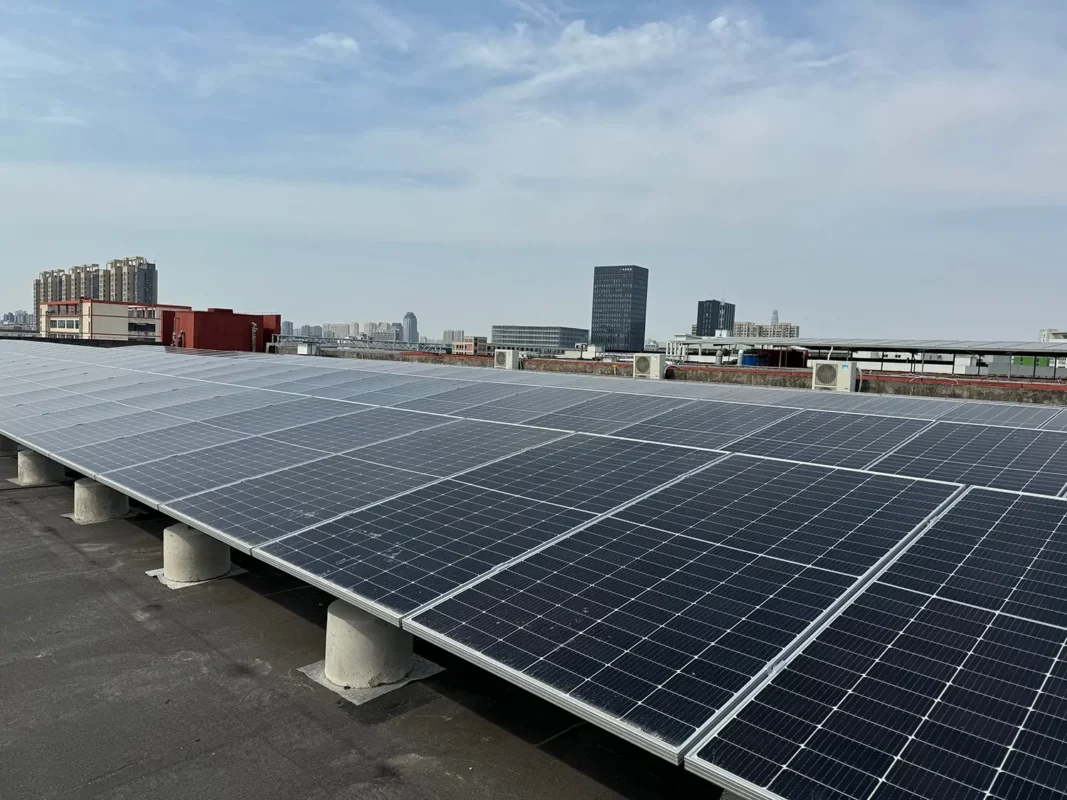A rooftop solar system installed by NEA, has begun powering our factory in China. The installation- part of a larger and wider initiative- will convert up to 20 percent of our factory’s energy consumption to clean, renewable power, marking an important milestone for NEA’s efforts in reducing the environmental impact.
Solar power, also known as solar energy, is a renewable and sustainable energy source derived from the sun’s radiation. Here are some of the key benefits of solar power:
-
Renewable and Sustainable: Solar power is derived from sunlight, which is abundant and inexhaustible. As long as the sun exists, we can harness its energy, making solar power a renewable and sustainable energy source.
-
Reduces Greenhouse Gas Emissions: Solar power produces electricity without emitting greenhouse gases like carbon dioxide, methane, or nitrogen oxides. By using solar energy, we can reduce our reliance on fossil fuels and mitigate climate change.
-
Energy Independence: Solar power can help countries and communities become more energy-independent by reducing their reliance on imported fossil fuels. This can enhance energy security and stability.
-
Low Operating Costs: Once a solar power system is installed, it has relatively low operating and maintenance costs compared to traditional power sources like coal or natural gas. This makes solar power cost-effective over the long term.
-
Job Creation: The solar industry creates jobs in manufacturing, installation, maintenance, and research and development. As the demand for solar power continues to grow, so does the employment opportunities in this sector.
-
Diverse Applications: Solar power can be used in various applications, including residential, commercial, and industrial sectors. It can power homes, businesses, schools, hospitals, and even remote areas that are not connected to the grid.
-
Scalability: Solar power systems can be easily scaled to meet different energy needs. From small rooftop solar panels on homes to large utility-scale solar farms, solar power installations can be tailored to match energy demand.
-
Environmental Benefits: In addition to reducing greenhouse gas emissions, solar power also helps conserve water resources, as it doesn’t require water for cooling like thermal power plants. It also reduces air pollution and environmental degradation associated with fossil fuel extraction and combustion.
-
Technology Advancements: Ongoing advancements in solar technology, such as improvements in efficiency, energy storage, and smart grid integration, are making solar power more accessible, efficient, and reliable.
-
Financial Incentives: Many governments and organizations offer financial incentives, such as tax credits, rebates, and grants, to encourage the adoption of solar power. These incentives can help offset the initial costs of installing solar panels.
Overall, solar power offers numerous benefits, ranging from environmental and economic advantages to job creation and energy security. As technology continues to improve and costs decrease, solar power is becoming an increasingly attractive and viable energy option worldwide.

